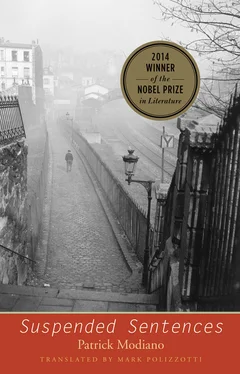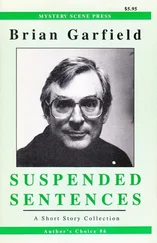Until that day, I’d never heard of Jansen. But I knew who Robert Capa was, having seen his photos of the Spanish Civil War and read an article about his death in Indochina.
Years have passed. Rather than clouding the image of Capa and Jansen, they’ve had the opposite effect: the picture is much sharper in my memory now than it was that spring.
On the photo, Jansen looked sort of like Capa’s double, or rather, like a little brother that the latter had taken under his wing. As much as Capa — with his dark brown hair, dark gaze, and the cigarette dangling from the corner of his lips — exuded brashness and joie de vivre, so Jansen — blond, skinny, light eyes, timid, melancholic smile — looked ill at ease. And Capa’s arm resting on Jansen’s shoulder was not merely friendly. It was as if he were holding him up.
We sat on the armchairs and Jansen offered us whiskey. He went to the back of the room and opened a door that led to a former kitchen, which he’d turned into a darkroom. Then he came back toward us.
“I’m awfully sorry, there isn’t any more whiskey.”
He sat a bit stiffly, legs crossed, at the very end of the sofa, as if he were only visiting. My girlfriend and I didn’t try to break the silence. The room, with its white walls, was very light. The two chairs and the sofa were placed too far from each other, creating a feeling of emptiness. It was as if Jansen had already stopped living there. The three suitcases, whose leather reflected the sunlight, suggested imminent departure.
“If you’re interested,” he said, “I’ll show you the photos when they’re developed.”
I had jotted down his phone number on a cigarette pack. Besides, he’d added, he was in the book. Jansen, 9 Rue Froidevaux. DANton 75–21.
At times, it seems, our memories act much like Polaroids. In nearly thirty years, I hardly ever thought about Jansen. We’d known each other over a very short period of time. He left France in June of 1964, and I’m writing this in April 1992. I never received word from him and I don’t know if he’s dead or alive. The memory of him had remained dormant, but now it has suddenly come flooding back this early spring of 1992. Is it because I came across the picture of my girlfriend and me, on the back of which a blue stamp says Photo by Jansen. All rights reserved? Or for the simple reason that every spring looks the same?
Today the air was light, the buds had burst on the trees in the gardens of the Observatoire, and the month of April 1992 merged by an effect of superimposition with the month of April 1964. The memory of Jansen pursued me all afternoon and would follow me forever: Jansen would remain someone I’d barely had time to know.
Who can tell? Someone else will write a book about him, illustrated with the pictures he’ll find. There’s a series of small black paperbacks devoted to famous photographers: why not one about him? He deserves it. In the meantime, it would make me glad if these pages rescued him from oblivion — though that oblivion is his own doing, deliberately sought.
I think I should set down the few biographical facts I’ve managed to piece together: He was born in 1920 in Antwerp and he barely knew his father. He and his mother were of Italian nationality. In 1938, after several years spent studying in Brussels, he left Belgium for Paris. There, he worked as an assistant to several photographers. He met Robert Capa, who in January 1939 brought him to Barcelona and Figueras, where they followed the exodus of Spanish refugees toward the French border. In July of that same year, he covered the Tour de France with Capa. When war was declared, Capa offered to take him to the United States and obtained two visas. At the last moment, Jansen decided to stay in France. He spent the first two years of the Occupation in Paris. Thanks to an Italian journalist, he worked for the photo services of the magazine Tempo . But despite this, he was picked up during a raid and interned as a Jew at the Drancy transit camp. He stayed there until the day the Italian consulate managed to have its citizens freed. Then he took refuge in the Haute-Savoie and waited out the rest of the war. Back in Paris, he was reunited with Capa and accompanied him to Berlin. During the following years, he worked for Magnum. After Capa’s death and that of Colette Laurent — the woman friend whose portrait I’d seen on the wall of his studio — he withdrew further and further into himself.
I feel somewhat awkward giving these details, and I can imagine how embarrassed Jansen would be if he saw them set down here in black and white. He was a man of few words. He did everything he could to be forgotten, including leaving for Mexico in June 1964 and completely dropping out of sight. He often told me, “When I get there, I’ll send a postcard so you have my address.” I waited for it in vain. I doubt he’ll ever come across these pages. If he were to, then I’d receive that postcard, from Cuernavaca or somewhere else, with just these words: “Be quiet.”
But no, I wouldn’t receive a thing. I only have to look at his photos to rediscover the quality he possessed in art as in life, which is so precious but so hard to acquire: keeping silent. One afternoon I’d paid him a visit and he’d given me the picture of my girlfriend and me on the bench. He’d asked what I was planning to do with my future, and I’d answered, “Write.”
That activity struck him as “squaring the circle”—the exact phrase he’d used. Indeed, writing is done with words, whereas he was after silence. A photograph can express silence. But words? That he would have found interesting: managing to create silence with words. He had burst out laughing.
“So, are you going to try? I’m counting on you. But most of all, don’t lose any sleep over it …”
Of all the punctuation marks, he told me, ellipses were his favorite.
I asked him about the pictures he’d been taking for nearly twenty-five years. He pointed to the three leather suitcases, stacked one on top of the other.
“I put everything in there … If you’re interested …”
He stood up and nonchalantly opened the topmost suitcase. It was full to the brim and a few pictures fell out. He didn’t even bother picking them up. He rummaged around inside, and other photos spilled from the valise and lay scattered on the floor. He finally fished out a volume and handed it to me.
“Here … I did this when I was about your age. This must be the last remaining copy in the world. It’s yours …”
It was a copy of Sun and Snow , published in Geneva, Switzerland, by the publisher La Colombière in 1946.
I picked the prints up off the floor and put them back in the suitcase. I said it was a shame to leave them all helter-skelter like that, that someone should organize and catalogue the contents of the three suitcases. He looked at me in surprise.
“You won’t have time … I have to leave for Mexico next month.”
Still, I could try to finish by then. I had nothing else to do during the day, since I’d dropped out of school and had earned a little money — enough to live on for a year — from the sale of some furniture, paintings, carpets, and books from an abandoned apartment.
I’ll never know what Jansen thought of my initiative. I think he probably didn’t care. But he gave me the spare key to the studio so I could come work when he was out. I was often all alone in the large room with its white walls. And every time Jansen came home, he looked startled to see me. One evening as I was sorting the photos, he took a seat on the sofa and watched me without a word. Finally, he asked, “Why are you doing this?”
That evening, he suddenly seemed intrigued by my activities. I’d answered that these pictures had documentary value, since they bore witness to people and things that no longer existed. He had shrugged.
Читать дальше












